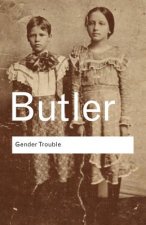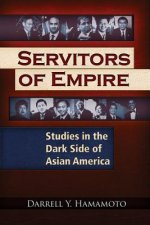
Kód: 04874834
Japanese Assimilation Policies in Colonial Korea, 1910-1945
Autor Mark Caprio
During Japan's colonial rule over Korea from 1910 until the end of World War II, Japan adopted assimilation as its administrative policy but was unable to integrate the Korean people as Japanese. In "Japanese Assimilation Policies ... celý popis
- Jazyk:
 Angličtina
Angličtina - Väzba: Brožovaná
- Počet strán: 320
Nakladateľ: University of Washington Press, 2009
- Viac informácií o knihe

45.83 €

Skladom u dodávateľa v malom množstve
Odosielame za 12 - 17 dní
Potrebujete viac kusov?Ak máte záujem o viac kusov, preverte, prosím, najprv dostupnosť titulu na našej zákazníckej podpore.
Pridať medzi želanie
Mohlo by sa vám tiež páčiť
-

Alan Titchmarsh How to Garden: Garden Design
14.42 € -23 % -

Pioneers 4 Life
11.45 € -13 % -

Seeking Mahadevi
132.09 € -

Moral Wisdom and Good Lives
55.65 € -

Citizenship in a Fragile World
205.87 € -

Marketing of Terrorism. Analysing the Use of Social Media by ISIS
89.63 € -

F*** My Wife!: Erotic Cuckold Stories from a Real Married Husband and Wife into The Swinging Scene
9.81 €
Darčekový poukaz: Radosť zaručená
- Darujte poukaz v ľubovoľnej hodnote, a my sa postaráme o zvyšok.
- Poukaz sa vzťahuje na všetky produkty v našej ponuke.
- Elektronický poukaz si vytlačíte z e-mailu a môžete ho ihneď darovať.
- Platnosť poukazu je 12 mesiacov od dátumu vystavenia.
Viac informácií o knihe Japanese Assimilation Policies in Colonial Korea, 1910-1945
Nákupom získate 113 bodov
 Anotácia knihy
Anotácia knihy
During Japan's colonial rule over Korea from 1910 until the end of World War II, Japan adopted assimilation as its administrative policy but was unable to integrate the Korean people as Japanese. In "Japanese Assimilation Policies in Colonial Korea, 1910-1945", Mark Caprio traces the history of this policy to determine why Japan failed to attain its stated goals. In his search through government documents, personal travel accounts, diary entries, published essays, newspaper editorials, and fictional works, Caprio uncovers a rich discussion regarding the policy's potential but little evidence of practical policy initiatives designed to realize Korean assimilation. In Korea, segregation was built into everyday life. Japanese and Koreans lived in virtually segregated communities. The colonial education system, unwilling to intermix large numbers of Koreans with Japanese, segregated students into two separate and unequal systems. As a result, inferior education blocked the social advancement of Koreans. Intermarriage between Koreans and Japanese was comparatively rare, while many who did marry found themselves ostracized from Korea-based Japanese society. Japan reinforced the second-class status of Koreans by limiting employment opportunities and denying representation in the political institutions Japan constructed for Korea. Japanese colonial policy during World War II enabled some improvement, as Koreans were promoted in government and factory positions to replace Japanese recalled home or sent to the battlefront. "Japanese Assimilation Policies in Korea, 1910-1945" also examines the diverse views held by Koreans regarding Japan's colonial policy. Mark Caprio is a professor in the Department of Intercultural Communications, Rikkyo University, Tokyo, Japan.
 Parametre knihy
Parametre knihy
Zaradenie knihy Knihy po anglicky Society & social sciences Society & culture: general Social groups
45.83 €
- Celý názov: Japanese Assimilation Policies in Colonial Korea, 1910-1945
- Autor: Mark Caprio
- Jazyk:
 Angličtina
Angličtina - Väzba: Brožovaná
- Počet strán: 320
- EAN: 9780295989013
- ISBN: 0295989017
- ID: 04874834
- Nakladateľ: University of Washington Press
- Hmotnosť: 494 g
- Rozmery: 227 × 153 × 21 mm
- Dátum vydania: 27. October 2009
Obľúbené z iného súdka
-

Women Who Run with the Wolves
11.65 € -3 % -

The Mastery of Love
12.37 € -19 % -

Intellectuals and Society
22.40 € -21 % -

Muhammad: His Life Based on the Earliest Sources
20.86 € -23 % -

Wisdom of the Native Americans
20.05 € -1 % -

Gender Trouble
27.21 € -4 % -

Rule by Secrecy
12.27 € -23 % -

Whipping Girl
17.18 € -19 % -

Islam, Arabs, and the Intelligent World of the Jinn
36.11 € -

Death of Nature
18.31 € -6 % -

City of Dreadful Delight
47.16 € -

Islamic Arms and Armor - In The Metropolitan Museum of Art
101.09 € -

Servitors of Empire
20.35 € -4 % -

History of Sexuality: an Introduction
17.59 € -3 % -

Art of Manliness - Manvotionals
14.62 € -20 % -

Indaba, My Children
22.40 € -3 % -

Gerotranscendence
145.70 € -

Indian Sign Language
10.84 € -4 % -

Gender Knot
35.50 € -9 % -

Think Like a Monk
15.75 € -24 % -

Who Cooked the Last Supper?
19.84 € -7 % -

Second Sex
16.57 € -23 % -

Goddesses in Everywoman
12.27 € -23 % -

Women Who Run With The Wolves
17.59 € -9 % -

Tom of Finland. The Complete Kake Comics
21.17 € -

Orientalism
11.04 € -23 % -

The Male Nude
18.31 € -10 % -

The Autobiography of Malcolm X
10.53 € -8 % -

Humans of New York
25.78 € -17 % -

Culture of Critique
23.93 € -17 % -

Dance of Anger
11.14 € -23 % -

Empire of the Summer Moon
14.42 € -23 % -

Desert Flower
10.22 € -24 % -

World's Best Cities
38.87 € -5 % -

Complete Book of Pilates for Men
19.33 € -20 % -

Allegory and Philosophy in Avicenna (Ibn Sina)
80.93 € -

Manipulated Man
14.01 € -18 % -

Going Clear
15.65 € -18 % -

The Way of Men
14.01 € -19 % -

Qur'an
32.84 € -23 % -

We Should All Be Feminists
7.56 € -25 % -

Talking with Female Serial Killers - A chilling study of the most evil women in the world
11.14 € -23 % -

Nice Girls Don't Get The Corner Office
9.81 € -24 % -

The Bell Curve
18.72 € -23 % -

Beauty Sick
12.27 € -23 % -

Iron John
16.57 € -22 % -

Black Rednecks & White Liberals
21.89 € -16 % -

Witches, Midwives, And Nurses
13.29 € -

Generations
19.94 € -14 %
Osobný odber Bratislava a 2642 dalších
Copyright ©2008-24 najlacnejsie-knihy.sk Všetky práva vyhradenéSúkromieCookies


 21 miliónov titulov
21 miliónov titulov Vrátenie do mesiaca
Vrátenie do mesiaca 02/210 210 99 (8-15.30h)
02/210 210 99 (8-15.30h)